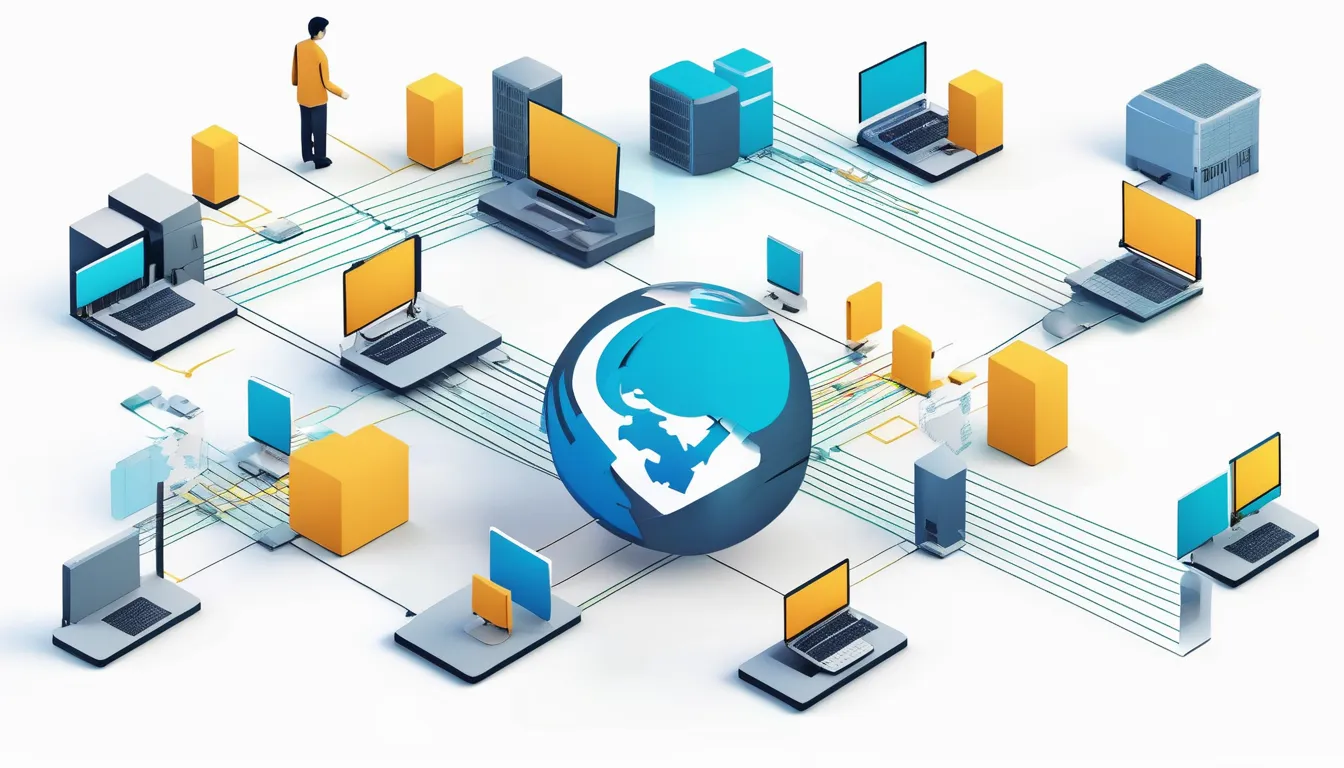
As you navigate the rapidly evolving landscape of information and communication technology (ICT), you’re likely aware that emerging trends are transforming industries and revolutionizing business operations. From advancements in 5G technology and quantum computing to the rise of edge computing and AI-driven automation, the pace of innovation is accelerating. But what does this mean automatisering your organization, and how can you stay ahead of the curve? The next few years will be crucial in shaping the future of ICT, and understanding these trends will be essential to unlocking new opportunities for growth and innovation.
Advancements in 5G Technology
Your smartphone is about to get a major upgrade thanks to the latest advancements in 5G technology. With speeds reaching up to 20 Gbps, you’ll be able to download movies in seconds and enjoy seamless video streaming.
The enhanced network infrastructure will also support a vast number of devices, making it ideal for IoT applications.
The improvements in 5G technology will also lead to the development of new use cases such as immersive gaming, augmented reality, and virtual reality. You’ll be able to experience these technologies in a more realistic way, with lower latency and higher data transfer rates.
Additionally, the increased capacity of 5G networks will enable widespread adoption of smart cities and other IoT-based applications.
As 5G technology continues to evolve, you can expect to see even more innovative applications emerge. The enhanced network capabilities will enable new business models and revenue streams, leading to further growth and development in the ICT sector.
With the latest advancements in 5G technology, you’ll be able to stay connected and enjoy a more immersive digital experience.
Quantum Computing on the Rise
As you experience the transformative power of 5G technology, it’s clear that the pace of innovation in the ICT sector isn’t slowing down. Quantum computing is the next frontier, and it’s rising fast. This revolutionary technology leverages quantum mechanics to process vast amounts of data exponentially faster than classical computers.
You can expect quantum computing to play a pivotal role in solving complex problems in fields like medicine, finance, and climate modeling.
As quantum computing advances, you’ll see significant improvements in areas like optimization, simulation, and machine learning. This will lead to breakthroughs in fields like materials science, chemistry, and pharmaceuticals. Major tech companies are already investing heavily in quantum computing, and startups are emerging to capitalize on this trend.
As you explore the potential of quantum computing, consider the potential applications in your own field. From optimizing complex systems to simulating real-world scenarios, quantum computing has the potential to unlock new insights and drive innovation. With quantum computing on the rise, it’s essential to stay informed and explore the possibilities this technology has to offer.
Cybersecurity Threats and Solutions
The ever-evolving digital landscape has created a perfect storm of cybersecurity threats, putting your sensitive data and intellectual property at risk.
You’re facing an increasingly complex and sophisticated threat landscape, with hackers using advanced techniques like AI and machine learning to launch targeted attacks.
Ransomware, phishing, and social engineering attacks are on the rise, and if you’re not prepared, you’re vulnerable to a breach.
It’s crucial that you stay ahead of these threats by investing in robust cybersecurity solutions.
This includes implementing advanced threat detection and response systems, conducting regular security audits, and providing ongoing training to your employees.
You should also consider adopting a zero-trust security model, which assumes that all users and devices are potential threats and requires verification before granting access to sensitive data.
The Future of Edge Computing
Increasingly, edge computing is becoming a critical component of modern IT infrastructure, particularly with the proliferation of IoT devices and the growing need for real-time data processing.
As you consider how to manage and process data from these devices, you’ll likely turn to edge computing for its ability to analyze data closer to where it’s generated.
Edge computing offers several benefits, including:
- Reduced latency: By processing data closer to the source, you can reduce the time it takes to analyze and act on that data.
- Improved security: Edge computing can help reduce the amount of data that needs to be transmitted to the cloud or a central data center, minimizing the risk of data breaches.
- Increased efficiency: Edge computing can help optimize data processing and reduce the strain on your network and cloud resources.
- Enhanced reliability: By distributing processing power across multiple edge devices, you can create a more resilient and reliable infrastructure.
As edge computing continues to evolve, you can expect to see even more innovative applications and use cases emerge, further transforming the way you manage and process data.
Artificial Intelligence and Automation
Edge computing’s ability to process data in real-time has laid the groundwork for the next wave of innovation: artificial intelligence and automation.
As you explore this emerging trend, you’ll notice that AI and automation are transforming industries and revolutionizing the way businesses operate.
With the ability to analyze vast amounts of data in real-time, AI can identify patterns, make predictions, and optimize processes. This enables businesses to make data-driven decisions, increase efficiency, and reduce costs.
As AI and automation technologies continue to advance, you can expect to see increased adoption in areas such as customer service, supply chain management, and cybersecurity.
Chatbots and virtual assistants will become more prevalent, providing 24/7 customer support and helping to resolve issues quickly and efficiently.
Additionally, AI-powered automation will enable businesses to automate repetitive tasks, freeing up resources for more strategic and creative work.
Conclusion
You’ll be on the cusp of a revolution in ICT as these emerging trends converge. Expect 5G, quantum computing, and edge computing to drive innovation in IoT, gaming, and real-time data processing. AI and automation will transform industries with data-driven decisions and efficiency. But with these advancements come rising cybersecurity threats – you’ll need robust solutions to stay ahead. Get ready for a future filled with growth and innovation in ICT.
